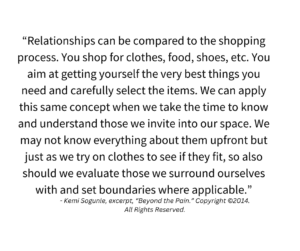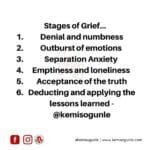Understanding Relationship Failures and Strategies for Improvement

Common Reasons Why Relationships Fail
The dynamics of relationships can be intricate, and various factors often contribute to their breakdown. One prominent reason is poor communication, which frequently leads to misunderstandings and emotional disconnection between partners. When individuals do not express their feelings or needs clearly, resentment can build. Research indicates that couples who communicate openly are significantly more likely to maintain long-lasting relationships. For example, misunderstandings regarding finances or household responsibilities often stem from inadequate communication, ultimately leading to conflict.
Another critical factor is lack of intimacy. Intimacy, both emotional and physical, creates a strong bond between partners. When couples experience a decline in affection or connection, they may feel isolated from one another. According to studies, couples reporting diminished physical affection have been found to be at greater risk of relationship breakdown. Without the foundation of intimacy, individuals may seek validation elsewhere, leading to potential infidelity, which tragically is another significant cause of relationship failure.
Differing values and goals also play a crucial role in the longevity of relationships. When partners have fundamental disagreements about life priorities—such as views on family, career aspirations, or lifestyle choices—this divergence can lead to discontent. For instance, a couple may find that one partner deeply values career advancement while the other prioritizes family time, resulting in friction over time allocation. It is vital for partners to align their long-term objectives early in the relationship to mitigate future conflicts.
External pressures, including financial stressors or significant life changes such as moving, job loss, or the birth of a child, can further strain relationships. These situations can create a sense of uncertainty and anxiety, making it more challenging for couples to maintain emotional closeness. Emotional issues like trust and resentment often surface in response to such pressures, compounding the risks of relationship deterioration.
The Role of Communication in Relationships
Effective communication is a cornerstone of any successful relationship. It serves as the vehicle through which partners share their thoughts, feelings, and needs, allowing for both connection and understanding. Different communication styles can significantly impact the dynamics of a relationship. For example, some individuals may adopt an assertive communication style, articulating their needs clearly and confidently, while others may lean towards a passive or aggressive approach, often leading to misunderstandings and conflicts. Recognizing these styles can help partners navigate their interactions more effectively.
One of the key techniques for enhancing communication is active listening. This involves fully concentrating on what is being said rather than merely hearing the words. By engaging in active listening, partners demonstrate that they value each other’s perspectives, which fosters a sense of respect and mutual understanding. It is essential for each participant in the conversation to feel heard, which can be achieved by paraphrasing and asking clarifying questions to validate feelings or concerns.
Moreover, expressing needs and feelings in a clear and constructive manner is vital. Using “I” statements, such as “I feel” or “I need,” allows one to articulate personal experiences without blaming the other partner. This technique helps to minimize defensiveness and encourages open dialogue, which is crucial for resolving conflicts. Additionally, addressing disagreements constructively rather than avoiding them can prevent the buildup of resentment and emotional distance.
To further improve communication skills, couples can implement regular check-ins, where they both discuss their thoughts about the relationship and any areas needing attention. By cultivating an environment where both partners feel safe and valued, the overall health and satisfaction within the relationship can be enhanced. Ultimately, strong communication fosters deeper emotional bonds, resilience, and a greater ability to navigate life’s challenges together.
Building Trust and Intimacy
Trust and intimacy serve as cornerstones for any successful relationship, providing the essential framework required for emotional resilience and connection. Establishing and maintaining these elements requires intentional effort, vulnerability, and open communication between partners. Vulnerability, often perceived as a weakness, is, in fact, a powerful element that allows individuals to reveal their true selves, fostering an environment where both partners feel safe and supported. This courage to share personal thoughts and emotions sets the stage for deeper intimacy.
Honesty plays a critical role in the trust-building process. Being truthful not only strengthens the bond between partners but also cultivates a culture where open dialogues can occur. For instance, couples can engage in regular discussions about their feelings, expectations, and any underlying concerns. Sharing ongoing experiences strengthens trust by demonstrating accountability and reliability, which reinforces the emotional security within the relationship.
In instances where trust has been compromised, rebuilding it can be a challenging yet achievable process. Effective strategies include acknowledging the breach of trust, accepting responsibility, and committing to changes that prevent future occurrences. For example, couples might explore professional counseling to navigate these difficulties together. Engaging in constructive activities, such as trust exercises or vulnerability-sharing sessions, can further stimulate healing. One common practice includes creating a “trust jar,” where couples deposit notes expressing gratitude and affirmations for one another, encouraging a positive reinforcement of trust.
Moreover, enhancing emotional and physical intimacy can be cultivated through shared experiences that require cooperation and teamwork. Activities such as cooking together, planning adventurous trips, or even engaging in a new hobby can reignite the passion and excitement in a relationship. Such practices not only bolster intimacy but also create lasting memories, contributing to an enriched and fulfilling partnership.
Ultimately, trust and intimacy must be actively nurtured in a relationship. By prioritizing vulnerability, honesty, and shared experiences, couples can effectively build and sustain a profound connection, fortifying their relationship against potential challenges.
Implementing Strategies for Relationship Improvement
To foster a healthy and fulfilling relationship, couples should actively implement a variety of strategies aimed at improvement and lasting connection. Regular communication check-ins can be a cornerstone of relationship maintenance, allowing partners to express their feelings and concerns in a dedicated setting. Allocating time for these discussions can significantly enhance understanding and emotional intimacy, preventing misunderstandings from escalating into larger conflicts.
Date nights serve as another effective strategy for rekindling romance and deepening connection. Setting aside time for shared experiences, whether trying new restaurants or engaging in hobbies together, can improve overall relationship satisfaction. Such activities provide opportunities for fun and relaxation, fostering memories that strengthen the relational bond over time.
Moreover, couples should consider establishing relationship goals that reflect their collective vision for the future. These objectives can range from financial planning to creating a family, and regularly revisiting them can offer a sense of direction and unity. Additionally, encouraging personal growth within each partner can resonate positively within the relationship. Supporting one another’s individual pursuits—be it career aspirations or personal interests—demonstrates respect and encourages a healthier dynamic.
For couples facing deeper issues, seeking professional help can be an invaluable resource. Couples therapy or relationship workshops can provide insights and tools that facilitate communication, conflict resolution, and mutual understanding. Such resources are essential, especially when navigating significant challenges that may feel insurmountable alone.
Ultimately, nurturing a successful relationship requires time and effort. By integrating these strategies—communication check-ins, shared activities, relationship goals, and professional guidance—couples can enhance their connection and foster lasting happiness. Dedicating oneself to the relationship, with an emphasis on mutual respect and continuous improvement, can significantly yield favorable outcomes, enriching each partner’s experience.




